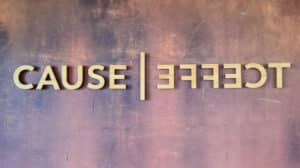February 3rd, 2024 by Notary New YorkYour Signer has Power of Attorney
There are moments that could arise where your signer has power of attorney. As such, you are notarizing the document for the representative of a specific person. There are certain circumstances in which a person may have power of attorney. Power of attorney gives a person control over specific aspects of their life. Such a person is also called “the attorney in fact.”
Situations where power of attorney may exist
- Maybe a parent is getting older and is no longer able to deal with their finances.
- Someone may be in the armed forces and is deployed overseas, thus unable to handle their domestic affairs.
- Someone may have a type of job that could entail the potential for serious injury, and they appoint a representative to handle their affairs should they become incapacitated.

A misconception is that the person is the power of attorney. This is not true. They are an agent who has the power of attorney. This seems like a small difference, but we need to make the point clear. Another point to make is that power of attorney ceases should the person represented becomes deceased So, the person who has power of attorney has the authority to sign on behalf of the principal without that person present. The term principal refers to the person being represented.
What’s Important
If asked to notarize a power of attorney document, it is important to know the rules which apply in your specific state. Some states require you to obtain a thumbprint of the signer. Okay, so someone comes to you to notarize a document for a principal. They should sign it with not only the principal’s name, but their own name. So, that person may sign with the principal’s name first, then their own name followed by the words, “Attorney in Fact.”
In notarizing where only an attorney in fact is present, you will only need to confirm the identity of the person present. Obviously, you cannot verify the identity of the person represented, who is not there. A key point here is that when the signer has power of attorney, they need to present the document to the notary. A photocopy is not acceptable, unless it is a certified copy.
Again, different states have different rules governing power of attorney. So, know your own state’s rules thoroughly Regarding New York, you can find an excellent article at evident.com.
Remember, in New York, a notary must now keep a journal. Feel free to read our blog article on what to record in a notary journal.
Feel free to browse our other notary articles or visit our FAQ page. Visit our Notary New York home page.
 The Notary and the Employer
The Notary and the Employer
You might provide notarial services solely in the workplace. Additionally, you may provide service outside the workplace. But, there must be an understood relationship between the notary and the employer. As a notary, one must act in accordance with the laws of the State. At times, an employer may request you to perform in inappropriate notarization. If you aspire to become a notary public in New York, or in any state, keep reading.
Let’s remember that the notary is subject to liability. This is why there must be a clear understanding between the notary the employer that we will not circumvent the laws that govern our commission. When you perform notarial service for your employer, both the employer and, you are subject to liability. Bear in mind, your notarial duties are dictated by the State, and not the employer. Thus, you may wish to read our article called, “The Notary as an Employee.”
What your Employer Must Understand
Our employer must understand what we can and cannot do as notaries. So, if our boss asks us to notarize a document for his or her offspring, as a favor, we cannot do it. Not unless the individual appears before us. This can present a contentious situation between you and your boss. But, if we create an understanding at the outset of our employment, we can minimize this type of situation.
Since we may be an employee, it becomes imperative for the company to understand that we are subject to the regulations of the law that governs us. Yes, the employer is in control of our employment, but they are not in control of our performance regarding notarization. The notary and the employer need to have a mutual understanding.
When everyone understands that accountability falls on both the notary and the employer, potential problems are then eliminated. The term “Best Practices” is just that, the best practice. A good Book to read on notary accountability is: Professor’s Closen’s Notary Best Practices Expert’s Guide to Notarization of Documents.
You can also obtain the book at Google Books.
For a detailed outline of best practices between the notary and the employer, watch this excellent YouTube video.
If you’d like to know more about our Notary Training Program, visit our About the Course page.
Picking Your Notary Training Course

Okay. You want to become a notary public. So, when picking you notary training course, there are certain criteria you should be aware of. It is important that you choose a provider who presents a program that will make sure you are fully prepared to pass the exam. Let’s look at some of the important things you should look for when choosing a training program. If you want to become a notary public in New York, you may want to read our article on How to Become a New York Notary.
Important aspects of picking a notary training program
- Make sure the exam is specific to your State. Every State has various nuances to its notary laws. Certainly, it is imperative that your training provide a course designed specifically for your State.
- Further, regardless of the State you live in, we recommend that you take your exam on a date that is relatively close to the date you complete the course. This is because all that knowledge you gained will be fresh in your mind.
- You need to decide if you prefer a live classroom course, or an online course. Each has its benefits and drawbacks. In a classroom course, you can have live interaction with the instructor. The drawback is, these courses are completed in a day or two, meaning that you have to cram information in a shorter period. An online class gives you the flexibility of convenience in that you take bits and pieces of the course over time. This allows better retention of information. The drawback is that when not in a live environment, the luxury of interaction becomes lost.
Basically, in either type of class, you want to be sure you are provided a workbook, or class manual. This way, you can easily refer back to it to refresh previous topics you learned.
We offer online training for those wishing to become a notary public in New York State. Feel free to evaluate our course before picking a notary training program. Learn more about our Notary Training at: https://www.notarynewyork.org
You can learn more about notary requirements in New York by visiting ny.gov.
Also, you can also visit the National Notary Association website.

When a Notary client is Not Present
You may ask, Can I notarize a document if the client is not present. The answer is YES and NO. It depends on the State in which you are commissioned. Where the answer is YES, there is a huge “BUT.” The client must sign the document in front of a Subscribing Witness. This person then signs a document that states that they have witnessed the signing of the absent person. The notary would issue an oath to the subscribing witness, where they swear that they watched the client sign the document. One example might be when the signer has Power of Attorney.
Rules for Accepting a Subscribing Witness
- Again, the subscribing witness must swear they saw the client sign the instrument
- The subscribing witness then signs a form called a Proof of Execution
- The notary then completes the notarization with the wording required by his or her State
You need to exercise extreme caution when you are asked to fulfill a Proof of Execution. Since you cannot absolutely identify the signer, the potential for fraud can increase dramatically. This is why some states do not even allow Proofs of Execution. Many other states have serious restrictions on Proofs of Execution. So, it is most important that you know your State’s law regarding the use of a subscribing witness. If you live in New York, you can accept a subscribing witness. If you would like to download the certificate, you can do so at ny.gov.
To your good fortune, it would be extremely rare when a notary client is not present. Many notaries we know have never had to accept a request for a Proof of Execution. But, should you receive such a request and, you are not totally familiar with your State law governing this notarial service, don’t be afraid to decline service. But remember, we must act in a professional manner.
Please feel free to read our other articles. You can visit us at: https://www.notarynewyork.org/blog
Notary Discipline
 There is something you should know if you wish to become a notary public in New York. Notaries public are subject to notary discipline. Yes, all notaries know this. But, anyone who wishes to become a notary public needs to understand the sanctions imposed for misconduct. So, in New York, notary misconduct can be a misdemeanor or a felony, depending on the nature of the transgression.
There is something you should know if you wish to become a notary public in New York. Notaries public are subject to notary discipline. Yes, all notaries know this. But, anyone who wishes to become a notary public needs to understand the sanctions imposed for misconduct. So, in New York, notary misconduct can be a misdemeanor or a felony, depending on the nature of the transgression.
Case Study
One of the more serious sanctions a notary can face is the revocation or suspension of his or her commission. If a notary commits fraud, the consequences are even more serious. The case of New York v Nathan Frankel alleged that the notary notarized a forged deed. You can read the entire transcript by clicking on the link in the previous sentence. Anyway, the court determined that the complaint did not establish enough evidence to support the claim that Mr. Frankel knowingly notarized a false deed. So, the case was dismissed. But, had the court found for the complainant, the defendant would have been convicted of a felony.
Notary Misconduct
The discipline for notary misconduct varies according to the offense. Let’s look at just a few.
- Failure to administer an Oath. This could result in revocation of the notary’s commission
- Falsely acting as a Notary Public. This would be a misdemeanor in New York
- Making False Statements. This can be fraud, which is a felony
- Any misrepresentation on a notary application. This would result in revocation.
- Issuing a false certificate. This would be a misdemeanor. But, issuing a false acknowledgement would be considered forgery.
The above are just a few examples where notary discipline can come into play. The smart notary knows the laws of his or her state. They then conduct themselves in a manner to avoid any hint of violating the law. To learn more about notary responsibilities, I recommend you visit Michael Closen’s you tube video.
This article is directed to anyone who desires to become a notary public. As stated, most commissioned notaries are well-aware of the laws that govern them. To read more of our notarial blogs, visit our blog page.

If you wonder what to record in a notary journal, allow me to put you at ease.
Most commercial journals contain the necessary categories already printed for you.
This facilitates your need to remember every critical item to record. However, it is important that whatever journal you purchase has specific information. Let’s review them.
Information to Record in a Notary Journal
- The time and date of the notarization
- The method of identification that the constituent presents to you
- The specific location where the notarization took place
- The type of document that you are notarizing
- The constituent’s name
- The constituent’s contact information
- The Signer’s willingness and competence
- The signer’s signature in your journal
- The notary fee that you charge for the notarization
- Any added information that you think could be important
Should circumstances be such that you need to refuse notarization this should also be recorded in your journal. Firstly, a notary should never refuse service. But there are many reasons one may refuse service to a document.
Reasons to Refuse Notarization
- Perhaps the signer appears intoxicated
- The signer may be drug-induced due to illness or lifestyle
- Further, maybe the signer shows signs of cognitive impaired. This client must understand what it is they are signing
- So, if the notary believes the constituent is under duress or influenced by someone who could benefit from the notarization
In such circumstances, the notary needs to record the refusal in his or her journal. This record should be as accurate as possible. Remember, your journal could be accessed in the future because it is a public record. Also, the accuracy of your journal entry could come into play should there be a future investigation or litigation.
These days, you can use an “e-journal”. Companies like Jurat provide such a service.
By the way, in New York State now requires that notaries use a Journal.
How to Perform Remote Notarizations
 To perform remote notarization in New York, you first must register as a remote notary with the state. To do so, you must first become a New York Notary Public. We advise that you learn more and visit the New York State Division of Licensing Services.
To perform remote notarization in New York, you first must register as a remote notary with the state. To do so, you must first become a New York Notary Public. We advise that you learn more and visit the New York State Division of Licensing Services.
Steps for remote notarization in New York
- First, the notary must identify the signer. The signer must show acceptable identification as if they were in your office. The signer must also be in the State of New York at the time of the remote notarization.
- The notary service must be done in “real-time.” Just as with standard notarization, the notary must witness the signing. However, it must be done through a secure audio/video technology, such as As such, you, or your employer, must sign up with DocuSign (or a competitive company. A monthly fee can range from $10 to $40 per month. Naturally, this will vary by the plan you choose.
- Once the constituent completes the signing. It is sent electronically to the notary.
- At this time, the notary affixes his or her stamp to the document and returns it to the constituent.
Remote notarization was put into place because of Covid-19. But, the state decided to amend the law and make it permanent, effective February 01, 2023. It is Senate Bill S1780C
Once you are registered with the state, you will be able to perform remote notarizations from the comfort of your computer. This is merely an outline of how to perform remote notarization. We can’t stress enough that you familiarize yourself with the law. Again, visit the link above at the New York Division of Licensing Services.
We intend to produce more articles on this aspect of notarial service. So, please come back and look for updated blog articles.
. Our goal is to help you prepare for the New York Notary Exam.
 I’m sure that most notaries know that they need to identify the mental competence of a client before notarizing the document.
I’m sure that most notaries know that they need to identify the mental competence of a client before notarizing the document.
We do this by observing the signer. Engaging in conversation will usually help us to affirm that the individual is competent to complete the notarial process. Let’s remember, we are not a psychologist. It is not our job to assert a professional opinion. However, giving today’s world, with its hunger for litigation, we need to take adequate precautions to protect ourselves. Therefore, we need to determine that the signer has an understanding as to why they appeared in front of us, and that they want a document executed.
Simply put, we not only have a legal responsibility, but also an ethical one, to prevent potential fraud. We need to make sure they person before us is not a minor, and that they are not signing the document under duress.
As I’ve stated above, we are not psychologists. Furthermore, we are only spending a few minutes with the individual. But, we need to exercise reasonable care to identify the mental competence of the signer.
Factors that could affect mental Competence
There are many factors that could affect a person’s mental competence. For Example:
- Alcohol – Although unlikely, but not impossible, the signer could appear before you in an intoxicated state.
- Drugs – Even prescription and over-the-counter drugs can affect mental competence. It’s not just illegal drugs that we need to be concerned with.
- The Elderly – We certainly cannot deprive someone of their right to obtain a notarization. But, as we all know, as people age their ability to process and understand information becomes diminished. So, if an elderly person appears before us, we need to assess their understanding of why they are there.
So, we need to remember to identify the mental competence of the signer before notarizing any document.
Our blog discusses several topics to aid the notary in his or her professional career. If you wish to become a notary in New York, you can visit the Department of State Website.
We offer online notary training to help you pass the notary exam and become a notary public in New York. Visit our home page to find out more.
In New York, and for that matter, every other state, the personal appearance of the signer before a notary is required. Notaries must understand and implement this requirement without exception. Failure to require a personal appearance not only devalues the office but it is in direct violation of the law. Think about it, how else can a notary confirm that the signer is who he or she claims to be? What’s also important is that a notary must avoid exposure to liability.

Why is a personal appearance before a notary so important?
Only when the client is present can the notary:
- Assess whether or not the client is signing of his or her own free will.
- There is no other way that a notary can witness the act of signing the document.
- There is no other way that the notary can satisfactorily positively identify the signer.
In addition, the notary cannot ask the signer to sign his or her journal if the signer is not present to do so. It is prudent for the notary to keep a journal that records the notarial service. When the client signs the notary’s journal, any question related to the signer’s presence can be eliminated.
Covid presented some new definitions to the term, “personal presence.” Several states have allowed remote notarizations. In New York State, remote notarization became permitted. That is, if said notarization falls in line with the State’s rules.
Methods for remotely identifying a signer in New York
- The notary has personal knowledge of the signer
- by means of communication technology that facilitates remote presentation by the signor of an official, acceptable form of ID, credential analysis, and identity proofing; or
- Through oath or affirmation of a credible witness who personally knows the signor, and who is either personally known to the notary or identified by the previously referenced means of communication technology.
Retail software can be purchased by notaries public to perform identify proofing and credential analysis.
To get a complete understanding of New York’s guidelines for remote notarization, visit NY gov at their website.
Or visit our website to read our other articles related to becoming a notary in New York. Or, check out our notary answers to frequently asked questions.
New York is now Allowing Remote Notarization
 That’s right. New York is now allowing remote notarization. Effective February 01, 2023, any notary in New York notaries can execute service to a document. But, you will have to register as such with NY state. And, of course, they will have to pay a fee to the state. However, there are some directives in the new law. Explicitly, it is recommended that you visit the New York State Division of Licensing Services to read their latest update. So, if you think that you want to become a notary public in New York, this is an important topic.
That’s right. New York is now allowing remote notarization. Effective February 01, 2023, any notary in New York notaries can execute service to a document. But, you will have to register as such with NY state. And, of course, they will have to pay a fee to the state. However, there are some directives in the new law. Explicitly, it is recommended that you visit the New York State Division of Licensing Services to read their latest update. So, if you think that you want to become a notary public in New York, this is an important topic.
We believe, that in time, remote notarization will become more prevalent. As a result, the need for Remote Notaries will likely diminish. Just as the horse and buggy became obsolete with the advent of the automobile, so too will mobile notary service eventually fall by the wayside as it is replaced by the continual advancement of technology.
Conditions for Remote Notarization
- Notwithstanding, The notary can’t notarize the document if he or she is physically in another state. They have to physically be in New York. That doesn’t mean that the signer has to be in New York. They can be in any state.
- The documents can be signed one of two ways.
1) By Electronic Signature: The ESIGN Act defines an electronic signature as “an electronic sound, symbol, or process attached to or logically associated with a contract or other record and executed or adopted by a person with the intent to sign a record.” To read the entire act, you can download it here. Download ESIGN Act
2) By Wet Signature: We already know that a wet signature is an action of signing a paper document with a pen. With a wet signature situation, you can use a company like DocuSign to send the document. This way you are delivering the instrument to the signer safely. - With remote notarization both the notary and the constituent must connect via computer AV technology like Zoom, Skype, etc. Chiefly, only if the technology used has proper security procedures.
- The notary still needs to establish the signer’s identity. This can be done by personal knowledge, by oath, by a credible witness, or by verifying accepted I.D.
- Any remote notarial act must be recorded and saved for a period of ten years.
- All remote notarial acts must be recorded in a journal of “remote notarization.”
- Any document sent electronically which is notarized by remote will be considered an original document.
Yes, New York is now allowing remote notarization. But, this does not include healthcare proxies or power of attorney.
By the way, we offer training to help you pass the New York notary exam. Please review our other blog articles at: https://www.notarynewyork.org

 The Notary and the Employer
The Notary and the Employer

 There is something you should know if you wish to become a notary public in New York. Notaries public are subject to notary discipline. Yes, all notaries know this. But, anyone who wishes to become a notary public needs to understand the sanctions imposed for misconduct. So, in New York, notary misconduct can be a misdemeanor or a felony, depending on the nature of the transgression.
There is something you should know if you wish to become a notary public in New York. Notaries public are subject to notary discipline. Yes, all notaries know this. But, anyone who wishes to become a notary public needs to understand the sanctions imposed for misconduct. So, in New York, notary misconduct can be a misdemeanor or a felony, depending on the nature of the transgression.
 To perform remote notarization in New York, you first must register as a remote notary with the state. To do so, you must first become a New York Notary Public. We advise that you learn more and visit the
To perform remote notarization in New York, you first must register as a remote notary with the state. To do so, you must first become a New York Notary Public. We advise that you learn more and visit the  I’m sure that most notaries know that they need to identify the mental competence of a client before notarizing the document.
I’m sure that most notaries know that they need to identify the mental competence of a client before notarizing the document.